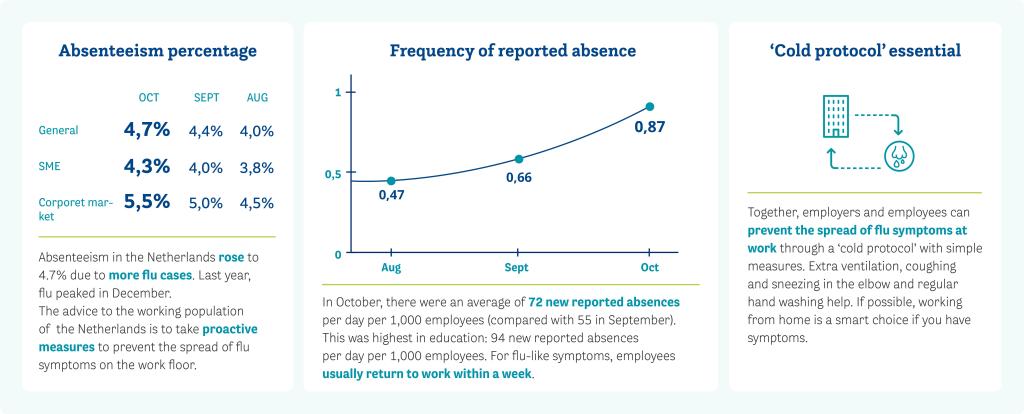Rise in flue cases grips the Dutch working population

More new sick reports: especially in the education sector
Last month, ArboNed and HumanCapitalCare received an average of 72 new sick reports per day per 1,000 employees. In September, that number was still 55. The education sector showed the highest number of new sick reports. In this sector, for every 1,000 employees, there were 94 new sick reports per day in October. Although employees who are absent due to flu-like symptoms can usually return to work within a week, simultaneous absences of a large number of employees have a significant impact on an organisation.
Creative solutions
“If many employees become unfit for work at the same time, this may put pressure on business operations. And the shortage in the labour market often makes it even more difficult to arrange immediate replacement,” says Jurriaan Penders, company doctor and director of medical affairs at HumanCapitalCare. “Flu-related absenteeism is expected to increase further in the coming months. In sectors such as education and healthcare, where absenteeism is high on average, it is essential that work continues. That’s why you see more and more creative solutions in these sectors, for example combining classes in schools when there are no substitute teachers for sick teachers, however undesirable.”
'Runny nose’ protocol is necessary
Besides organising work differently, employers and employees can also work to prevent the spread of flu symptoms in the workplace as much as possible. Penders: “Staying home with a runny nose is not necessary in itself. But it is still wise to be alert to some basic rules together. Examples are extra ventilation, coughing and sneezing into the elbow and washing your hands regularly. And if you can work from home, this is a wise choice as long as you have symptoms. With the December rush ahead, it is important to avoid absenteeism due to flu and thus additional workload on employees.”